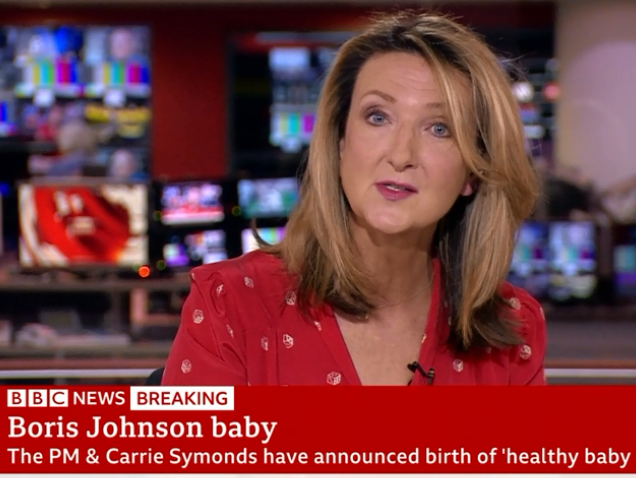
The number of BBC news teams with equal on-air representation of men and women has grown from last year, despite drastic changes to the broadcaster’s output during the coronavirus crisis.
Two-thirds of the 600 teams taking part in the BBC’s 50:50 challenge reached on-air gender parity in March. Just over one third (34 per cent) of the same teams had equal gender representation when they first started monitoring their data within the last two years.
In total, 68 per cent of the news and current affairs teams taking part in the challenge reached the 50:50 target in March this year, up from 62 per cent last year. Just under a third (32 per cent) of the news teams taking part this year had gender parity when they first signed up to the project.
Among the news teams reaching the target last month were:
- BBC News Channel – 53 per cent women (up from 38 per cent when monitoring began)
- BBC Breakfast –51 per cent (up from 40 per cent)
- News At Six – 50 per cent (first entry 42 per cent)
- Andrew Marr Show –50 per cent (up from 42 per cent)
The BBC 50:50 challenge launched two years ago, with more teams having joined since then. Teams monitor the gender of all reporters, commentators, spokespeople, analysts, academics, and case studies for every programme and piece of online content they produce.
One month every spring – the “challenge month” – figures are published.
Journalist Nina Goswami, who started as the BBC’s creative diversity lead in February but has since returned to the newsroom to report on Covid-19, told Press Gazette the challenge month could have been postponed as many programmes were forced to adapt to the pandemic in March.
Some shows, including Victoria Derbyshire and Politics Live, have been taken off air while Question Time is broadcasting without audience as the BBC news channel reduced to a “core news service” during the crisis.
BBC director of news Fran Unsworth warned viewers last month that things would “look and sound a bit different” while the corporation adapted.
“We could have just turned round and said because of the changing circumstances we find ourselves in we are going to have put the challenge month on hold, but what we decided is we wanted to show there was actual change happening in the BBC,” Goswami said.
“That this wasn’t something we all strive for, but something that’s becoming part of our culture and our psyche so what better way to prove that than to see what would happen during the most extraordinary month of news during our lifetime?”
Goswami said the monitoring and sharing of gender diversity data had become ingrained into many of the BBC’s news programmes.
“The more you think about something the more attuned to it you become, so it becomes part of your daily workflow and thinking when you’re trying to look at a story,” she said.
But more female voices are still needed in sport, engineering and technology stories, she added, although she pointed to the BBC’s coronavirus coverage in showing that science representation has improved in the past year.
The BBC is now expanding the 50:50 challenge, with an initial target of 15 per cent non-white voices and 12 per cent disabled representation. Thirty pilot teams are signed up to trial this expansion, although most of them are currently off-air because of coronavirus.
The BBC reported a three-fold increase in the past year of external organisations using its methodology for gender monitoring, including RTE in Ireland and ABC News in Australia, reaching more than 60 in 20 countries
It is also planning to work with more journalism schools around the world, which Goswami said would ensure “the next generation have representation at the forefront of their minds when they’re thinking about their journalism”.
Email pged@pressgazette.co.uk to point out mistakes, provide story tips or send in a letter for publication on our "Letters Page" blog
